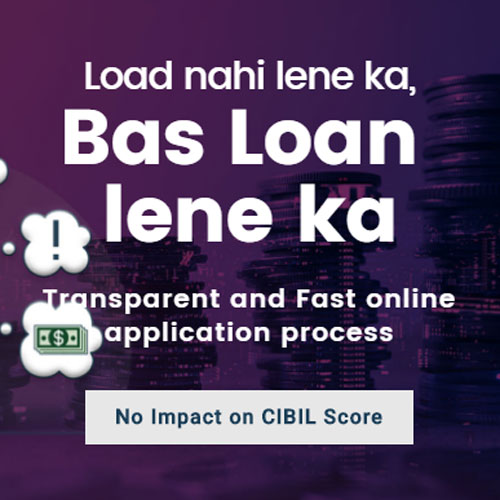State Bank of India provides car loans to every segment of the population namely salaried professionals, self-employed professionals, partnership firms and agriculturists. SBI Car Loans are provided for multi utility vehicles, new passenger cars and SUVs. With such a wide variety of options, the SBI car loan scheme becomes a natural choice for an applicant wanting to buy a car of his/her choice.
Features of SBI Car Loan
State Bank of India provides one of the best car loans in India with a wide range of benefits. Customers opting for a SBI car loan can expect great value and return on their investment.
Key features of a State Bank of India car loan are given below.
- The State Bank of India car loan comes with no hassles regarding EMIs and gives a customer the lowest EMI payment option possible. The added advantage is that a customer does not have to pay any advanced EMI while availing a SBI car loan. Customers also have the flexibility of opting to pay their EMIs at any time during the month.
- The interest rates offered are also the lowest ranging from 9.20% – 9.25% . The interest rate is calculated for a borrower based on the daily reducing balance.
- SBI offers the longest repayment tenure with customers selecting periods of up to seven years (84 months) for repayment of their car loans.
- State Bank of India does not charge any penalty for pre closure of a car loan.
- The bank charges a processing fee of 0.51% of the loan amount, with a minimum requirement of Rs 1020/- up to a maximum of Rs 10200/-.
- Customers availing a SBI car loan can also enjoy the benefit of an additional SBI life insurance cover.
- The loan margin allowed by SBI for borrowers with a net annual income of up to Rs 10 lakhs is 15% of the on-road price of the car. For customers with a net annual income of more than Rs 10 lakhs, the loan margin is around 15% on the ex-showroom price or 20% on the on-road price of the car.
- An overdraft facility is also available with SBI for borrowers.
SBI Car Loan Interest Rates
A car loan is sanctioned by a lender to help the borrower purchase the car of their dreams. There are a number of banks that provide car loans at attractive rates. State Bank of India has a number of great deals when it comes to car loans which are tailor made to cater to the needs and requirements of the people. Here is a list of loans that have been made available by SBI:
| Loan Scheme Name | Time period | Interest Rates for Men (p.a.) | Interest Rates for Women (p.a.) |
|---|---|---|---|
| Car loan | For the full time period | 9.25% | 9.20% |
| Combo loan scheme | For the full time period | 9.25% | 9.20% |
| Certified pre-owned car loan | For the full time period | 12.65% | 12.65% |
| NRI Car Loan | For the full time period | 9.25% | 9.20% |
| SBI Assured Car | For the full time period | 9.25% | 9.20% |
| SBI Loyalty | NRI car loan, car loan, combo loan | 9.15% | 9.10% |
| Two-wheeler | For the full time period | 17.25% | 17.25% |
| Super Bike | For the full time period | 11.65% | 11.65% |
With rates like these, it is not a tough task to pay back a car loan for any citizen who’s capable of pickup a car.
SBI follows the system of MCLR (Marginal Cost Based Lending Rate) to determine the applicable interest rate for car loans as per the mandate by RBI. The bank maintains a single slab of interest rate applicable for all term options.
Note: The above mentioned interest rates are subject to change as per the revised GST rates.
SBI Marginal Cost Based Lending Rate (MCLR) for New Borrowers
| Benchmark MCLR rate | 9.15% |
| SBI Car Loan Scheme | 9.75% (MCLR + 0.60%) |
| SBI Combo Loan Scheme | 9.75% (MCLR + 0.60%) |
| NRI Loan Scheme | 9.75% (MCLR + 0.60%) |
| Pre-owned Car Loan | 13.15% (MCLR + 4.00%) |
Women borrowers get a concession of 0.05% on the existing rate for all car loans schemes from SBI.
A car insurance online plan gives you comprehensive coverage at an affordable cost. Have you found yours yet?
Note:The MCLR is subject to periodic revision as per bank’s credit policy and RBI’s quarterly reviews. Make sure to confirm with the bank on prevailing rates at the time of applying and choose the terms accordingly.
SBI Car Loan
Eligibility
- SBI car loans can be easily availed by individuals above the legal age of 21 up to an age of 65 years.
- Salaried professionals can apply as a single applicant or as co-applicants with a combined net annual income of Rs 3, 00,000/-. State and Central Government employees, Public Sector and Private sector employees qualify as salaried professionals for SBI car loans. The loan amount that will be sanctioned for a salaried employee will be 48 times more than the net monthly income.
- Self-employed businessmen, proprietary or partnership firms with a net profit or gross taxable income of Rs. 4, 00,000/- per annum are also eligible to apply for a SBI car loan. If there are co-applicants in this case, then the income of the co-applicant can be clubbed with the applicant’s income details. For self-employed professionals, the bank generally sanctions a loan amount up to four times more than the net profit or gross taxable income as per Income Tax Returns (ITR) after the addition of depreciation. The payment pattern of a customer with regards to other loans would also be considered while approving a SBI car loan.
- SBI also provides car loans for persons involved in agriculture and other allied activities. The net annual income of an applicant and a co-applicant in this case should come up to Rs. 4, 00,000/- for obtaining an approval from the bank. State Bank of India sanctions car loans up to three times more than the net annual income for agricultural applicants.
While applying for a SBI car loan, customers need to submit the completed application form along with a list of required documents namely – borrower’s bank account statement for the last six months, two passport size photographs, copies of passport or voter’s id or pan card, a proof of residence, latest salary slip for employed professionals and proof of office address for self-employed individuals. IT Returns form and Form 16 for the previous two years are also required for both salaried and self-employed individuals.





